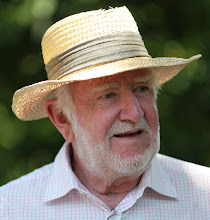Of course, the moment you start to consider the futility of religious wars, the folly of ill-founded belief becomes only too obvious. But I am more concerned with beliefs that are at least demonstrably on the shakiest of grounds. In particular, those where there is good science to establish a strong base for disbelief.
Of course, I immediately recognize the problem in that weasel word "good." How do you tell good science from bad? The philosopher Karl Popper is my favorite source for answering this question. In essence, one of his strongest tests is that a good scientific finding is one that is independently replicable. If I scientist tell you non-scientist that I did X and Y was the result, and I also tell you how I did X, and you follow my recipe and Y happens, then you have a strong basis for believing that X causes Y. That is good science.
Of course, we may not have established the true basis for the link between X and Y, but at least we have a working hypothesis on which to found further questions. And by linking a whole body of questions and their testable answers, we can build a world view that possesses a strong logic. Armed with such a view, the need for belief in answering new questions weakens.
We may ultimately find that the link between X and Y is fortuitous, and that there is a better answer which improves our world view. That, of course, is precisely what happened when Einstein linked mass and energy and overthrew Newton's view of the world which had directed our thoughts for over 200 years. But Newton's world is still taught in our schools, because it answers many of our day-to-day questions with adequate precision.
However, today there is a new problem. Bad science can give rise to disastrous beliefs. There is an excellent example in the bad science of one Andrew Wakefield, who in 1998 published a paper in the prestigious Lancet claiming a link between inoculation and bowel disease which in turn caused autism in children. It was bad science, because it turned out not to be replicable. Wakefield was eventually charged with fraud and found guilty, while Lancet withdrew the paper.
However, many felt that the risk of inoculation causing autism was unacceptable, and refused to have their children inoculated. Seventeen years later the results are becoming apparent. From America comes news of children being "sent home from school. Their families are barred from birthday parties and neighborhood play dates. Online, people call them negligent and criminal. And as officials in 14 states grapple to contain a spreading measles outbreak - -, the parents at the heart of America’s anti-vaccine movement are being blamed for incubating an otherwise preventable public-health crisis." (New York Times 30 Jan)
The human tragedies that the fear of inoculation has caused are innumerable. There are the parents whose child contracted whooping cough, and with whom they had to sit day and night for nearly four months as their child fought for breath. They could not understand that the vaccine would not work once the disease had been contracted. There is the young mother who had consciously decided that the risks of the vaccine were so great that she should do without, then contracted rubella and gave birth to a blind, deformed child. There is a reaction building, and doctors are refusing to help parents who neglected to have their children inoculated. Perhaps America will slowly come to its senses.
If it is not replicable, it is not good science. Inoculation is eminently replicable - it may have slight side effects, but the risks of the side effects are minuscule compared to the risks of the infectious diseases it prevents.
We have to speak out against bad science. It can cause beliefs that have tragic consequences. Nowhere is this more apparent than in the area of climate pseudoscience. Billions of dollars are being diverted to prop up a belief system that daily is becoming more irreplicable. It is even going so far as to change historical data to try to convince us that the world is warming faster than before:
(Thanks to Josh and WUWT)
The "adjustments" turn out to be in exact multiples of tenths of a degree, for reasons that no-one can explain. All are downwards in the early years, thus making the apparent warming greater than it would otherwise be. And these are the "official" figures from the Global Historical Climate Network, the basis for all the fears about climate change. Bad, bad science, with predictably tragic consequences.



No comments:
Post a Comment